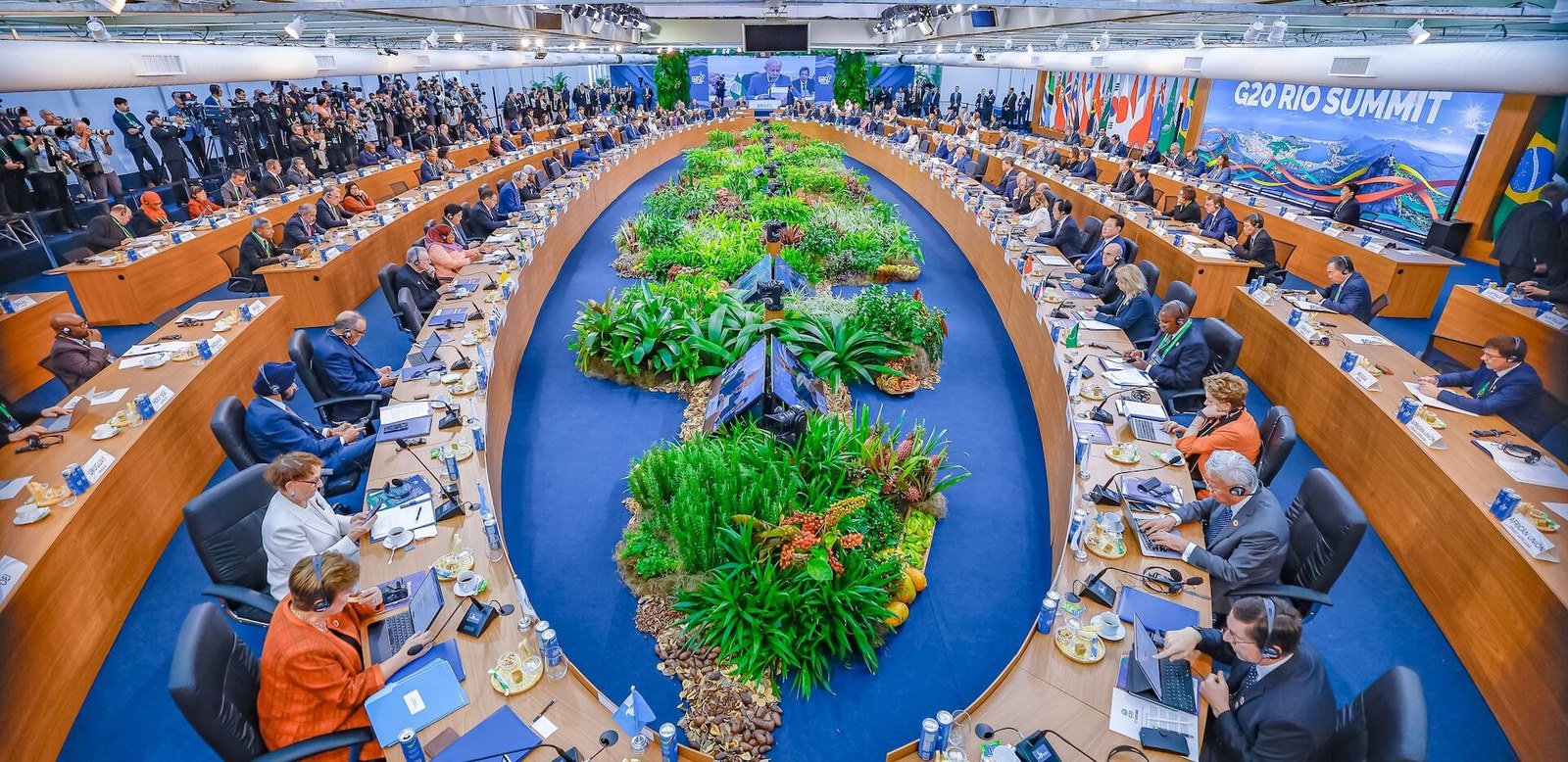Brasil in the global leadership: towards BRICS and COP 30 in 2025
In addition to the G20, whose Leaders' Summit took place on the 18 and 19, Brasil is preparing to chair two other strategic international forums in 2025: BRICS and COP30. Discussions and agreements approved in the Leaders' Declaration will serve as the basis for future advances.

By Luciana Bento - Sitio G20 Brasil
The Leaders' Summit, held in Rio de Janeiro on the 18th and 19th, marked the culmination of a year-long process in 2024. Agendas, discussions, agreements, and consensuses were stitched together throughout this period, culminating in releasing the Leaders' Declaration at the event's conclusion.
Throughout the process, Brasil successfully advanced significant progress on critical issues including combating hunger, climate change, and reducing inequalities. One of the main achievements was the launch of the Global Alliance Against Hunger and Poverty. This initiative calls on all countries to unite in a coordinated effort to tackle one of the most severe global problems. The Brazilian proposal seeks to mobilize resources and strategies to combat food insecurity, especially in developing countries, representing a milestone in the international solidarity agenda.
The G20 outcome document revealed significant advances on multiple fronts, highlighting the commitment to accelerate sustainable energy transitions, tripling renewable energy capacity by 2030, and doubling global energy efficiency. The unprecedented mention of combating racism and promoting racial equality demonstrates a critical evolution in the understanding of structural inequalities.
Leaders simultaneously recognized artificial intelligence's economic potential and ethical risks, deciding to create a High-Level Instance for technology governance. The decision reflects the maturity of discussions on technological innovation and its social impacts, positioning the G20 as a fundamental forum for regulation and international cooperation.
BRICS and COP in 2025
In 2025, Brasil will assume the presidency of the BRICS, a bloc expanded by the participation of Saudi Arabia, Iran, the United Arab Emirates, Egypt, and Ethiopia. These countries were added to the original members: Brasil, Russia, India, China, and South Africa. Some of the priorities of Brasil's G20 presidency, such as global governance reform and energy transitions, are on the agenda.
Regarding energy transitions, the New Development Bank (NDB) – the BRICS Bank – will play a fundamental role in financing this process in Global South nations, directing resources to infrastructure that supports the digitalization and decarbonization of productive energy mix.
Brasil, with its energy mix based on renewable sources, is already an example for the world. The presidency of COP30 will be an opportunity to consolidate these advances and reaffirm the global commitment to reducing emissions and climate adaptation.
*Translated by PGET-UFSC